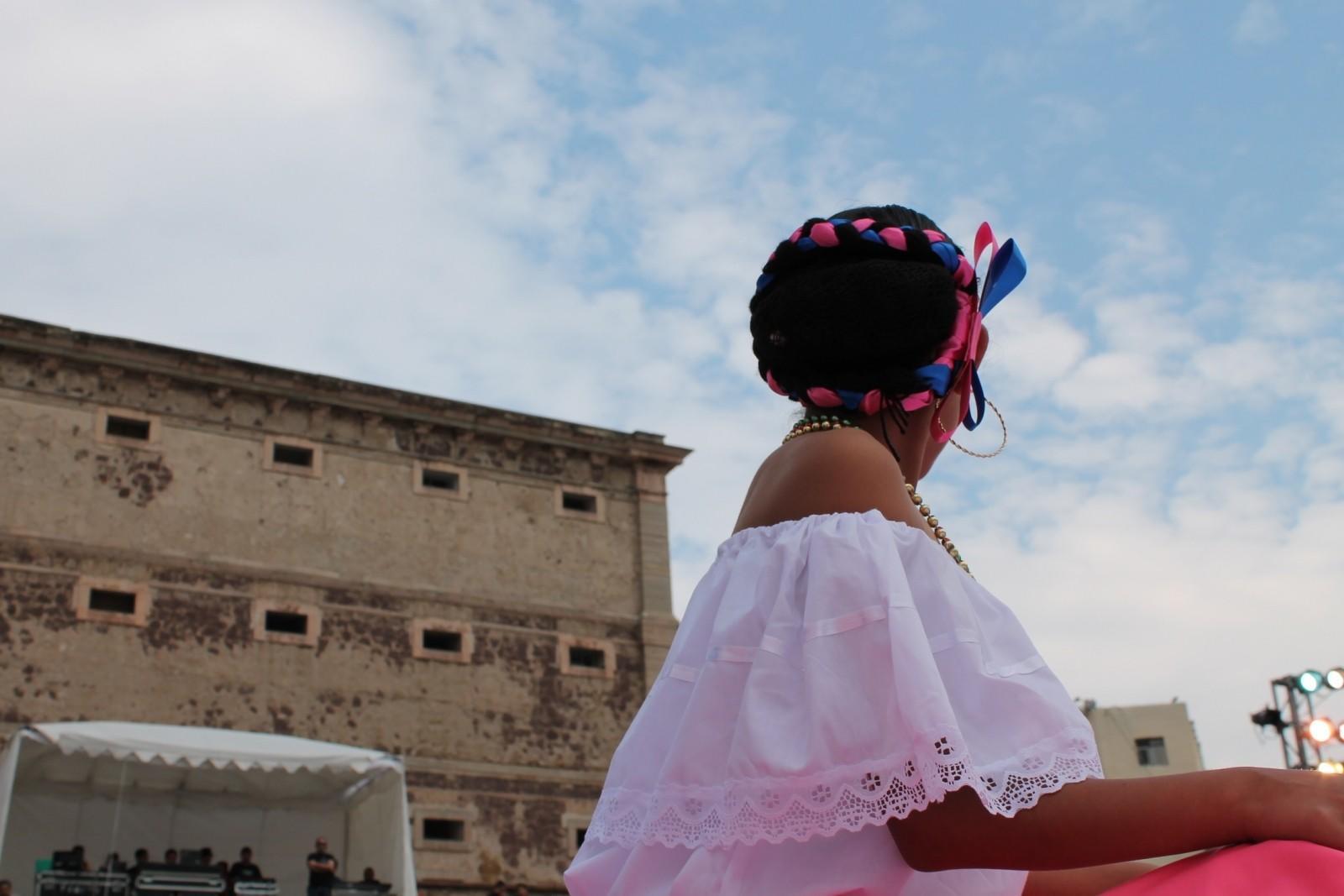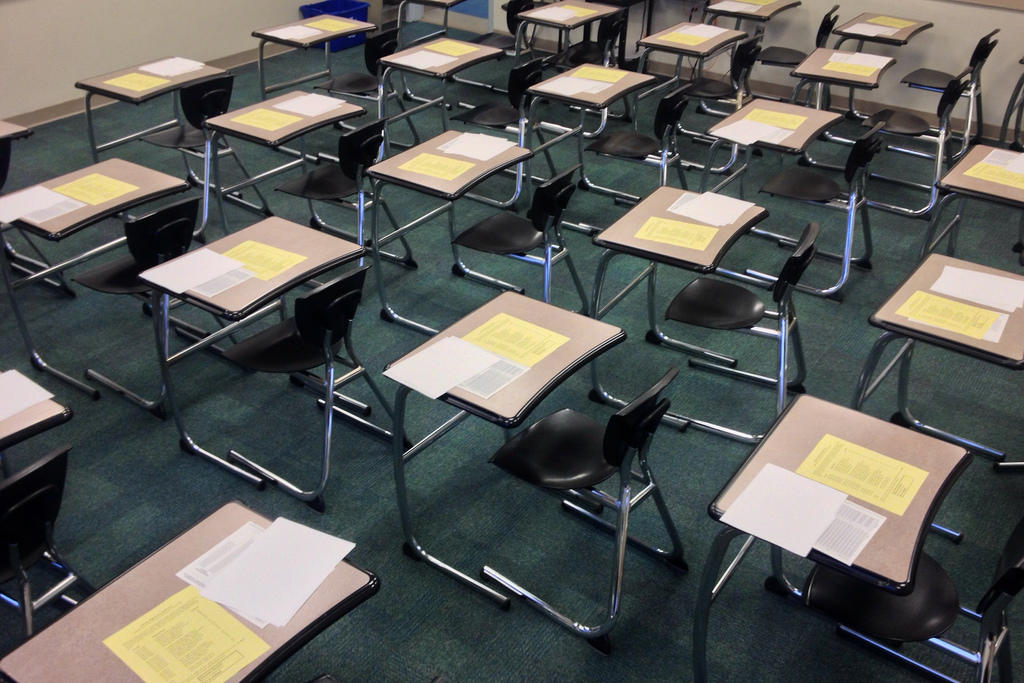Spanish is the second most spoken language in the world in terms of native speakers. 440 million people speak Spanish natively and many more learn it as a second language, which makes it a hugely important language around the world.
There are 20 countries where Spanish is the official language and many of these countries are in South America, where the language is pretty much essential if you want to visit the continent (with the exception of Brazil where Portuguese is spoken).
Spanish is so important that many countries around the world teach it as a second language and it's one of the most popular languages to teach in English-speaking countries because of its global importance and how easy it can be for English speakers to learn in comparison to other languages.
The history of the Spanish language is a fascinating one and another reason many students are interested in learning more about Spanish and all the Spanish-speaking countries around the world. Learning any language, including Spanish, is an excellent way to improve your employability, discover new cultures, and learn about history.
There are quite a few ways to learn Spanish. You can study it in school, learn Spanish with a tutor, or teach yourself online or through immersion. While tutors and teaching yourself can cost money, if you're still in secondary school, you have the opportunity to study the language for free.
In New Zealand, you can study NCEA Spanish at your secondary school provided they offer it and you'll be able to gain a qualification that validates your abilities in Spanish reading, writing, speaking, and listening.
As with any subject, you'll want to get the best possible results, especially if you plan on taking your Spanish beyond secondary school. So how can you prepare for your NCEA Spanish?

NCEA Spanish
Studying Spanish as part of the curriculum can be enjoyable no matter what country you live in and all it takes is a good teacher or tutor to help you see this.
In New Zealand, you can study Spanish in years 11, 12, and 13 as part of the National Certificate of Educational Achievement (NCEA). This is a secondary-school qualification that's administered by the New Zealand Qualifications Authority (NZQA) and form part of the requirements for university places for students in New Zealand.
- The levels of NCEA build upon one another and you need to pass one level before moving onto another. For NCEA Level 1, which takes place in year 11, students need 80 credits with 10 in literacy and 10 in numeracy.
- In year 12, 80 credits are required to progress and 60 of them must be from NCEA Level 2, which is the level for this year. The literacy and numeracy requirements from Level 1 still apply: 10 literacy and 10 numeracy credits at Level 1.
- Finally, the NCEA Level 3 also requires 80 credits with 60 from Level 3 and 20 from Level 2.
NCEA Spanish Level 1
At level 1, the credits are tested on skills such as understanding a variety of spoken Spanish, giving a spoken presentation in Spanish, communicating personal responses, communicating ideas and opinions, understanding Spanish texts, and writing a variety of Spanish text types, for example.
These skills each equate to 4 or 5 credits and you can find out more information by reading the latest "Achievement standard" (the document outlining what's required) on the NZQA website, which has a useful search tool to find these documents according to subject and level.
The achievement standards for NCEA Spanish Level 1 are derived from the Learning Languages Communication Strand Curriculum Level 6 of The New Zealand Curriculum if you're interested in that kind of thing.
NCEA Spanish Level 2
As you can imagine, NCEA Spanish Level 2 tests a lot of the same skills, just with more complex language and a broader range of expected skills. For example, students are now expected to be able to share information and justify opinions in different situations using spoken Spanish.
Again, you can find the exact details on the NZQA website.
NCEA Spanish Level 3
Level 3 builds upon Level 2 and all of these and both NCEA Spanish Levels 2 and 3 are based on Level 7 Communication, Language Knowledge, and Cultural Knowledge strands in the Learning Languages Learning Area of The New Zealand Curriculum.
If you really want to delve into these documents, you can, but more often than not, your teacher should be aware of what this entails and be teaching you what you need to know to do well in your assessments.
As with most language courses, students are tested on the 4 main competencies of language: reading, writing, listening, and speaking. NCEA Spanish is no different and each year, students will build upon what they've studied previously and be tested on these skills with more advanced and complex language.
Help With Studying NCEA Spanish
While the teachers at your secondary school are there to help you with your Spanish, every student is different and not every teacher has the time and resources they need to teach their students as effectively as possible.
This isn't necessarily the fault of the teacher, by the way. In some circumstances, there are too many students in a class, the range of levels is too great, or the teaching approach offered for the good of the entire class isn't one that's effective for certain students.
In this case, a private Spanish tutor could really help you with NCEA Spanish.

Choosing the right Spanish tutor is as important as deciding that you need one. After all, if you don't choose the right Spanish tutor, then you mightn't fully benefit from the extra tuition.
With the right tutor, you can learn Spanish using the methods that work for you and at a comfortable speed.
Struggling with some tricky Spanish grammar? Your Spanish tutor can take some more time to go over it until you get it.
Finding something really easy? There's no need to dwell on it and your tutor can move on to something else.
Don't forget that your tutor isn't a miracle worker and your success depends as much on you as it does on them. Be a model student, work hard during your sessions and always prepare for your Spanish lessons so that you can get the most out of every minute of your Spanish lessons.

Other Ways to Learn Spanish: Studying Spanish Abroad
You can also learn Spanish outside of the New Zealand curriculum and Spanish lessons at secondary school. Whether you have or haven't done NCEA Spanish, you can still learn Spanish at home or abroad.
For many, going to a Spanish-speaking country is one of the most effective ways of mastering the language. NCEA Spanish can help because a lot of study-abroad programs are available through domestic university courses and NCEA Spanish can help you get into these programs.

In Spain, for example, you could choose to study the Diploma of Spanish as a Foreign Langauge (DELE). This is the Spanish-language qualification offered by Spain's Ministry of Education, Culture, and Sport.
There are preparatory courses for the DELE offered across Spain both through schools in Barcelona, Granada, Madrid, Salamance, Tenerife, Valencia, Alicante, etc. as well as lots of private Spanish tutors who can help you get through the exam.
The DELE follows the Common European Framework of Reference for Languages (often known as CEFR) and includes six levels: A1, A2, B1, B2, C1, and C2 from lowest to highest.
The levels are defined as follows:
- Level A1 (Breakthrough): At this level, students can communicate basic needs in everyday situations.
- Level A2 (Waystage): A2 students are expected to be able to use everyday phrases and talk about themselves, their families, shopping, places of interest, work, etc.
- Level B1 (Threshold): B1 level students can understand the general gist of basic texts, talk about work, studies, and leisure. At this level, students also learn to speak Spanish at a level where they can deal with the most common situations that occur when travelling. They'll also learn about describing experiences, events, opinions, etc.
- Level B2 (Vantage). At B2, students should be able to start communicating with native Spanish speakers somewhat fluently. They'll be able to understand and talk about a variety of different topics, defend their opinion, and understand the gist of more technical texts in familiar areas.
- Level C1 (Effective Operational Proficiency): C1 students can understand longer and more complex texts while understanding the general meaning, expressing themselves fluently in Spanish in a wide range of situations from casual conversation to professional settings.
- Level C2 (Mastery): C2 is the highest level in CEFR and C2-level speakers can use the Spanish language fluently in any situation accurately and with nuance.
Immersion is one of the quickest way to make your way through these levels (with the right tuition, of course), but the downside is that moving to Spain to study the language isn't the cheapest option out there.
In addition to paying for lessons, you need to think about the cost of getting to Spain, accommodation while you're there, and a means to earn money. Before you make any decision about immersion, do your research and consider the cost of Spanish lessons around the world.
Revising for Spanish Exams at Secondary School and Abroad
The difference between good and bad results isn't always down to your level in Spanish. How you prepare and revise for exams is often what really makes the difference. While exams are mostly there to test your level, most exams test your ability at passing that particular exam.
Some exams will test you on grammar such as verbs, conjugations, tenses, adjectives, etc. while others will have you speaking Spanish or listening to examples of the language. These skills are related, but they're also all different and are practised in different ways.

If you struggle to revise or need help structuring your revision, a private tutor could help. Your private tutor mightn't even be a dedicated Spanish tutor, but rather a tutor that focuses on revision or study skills. In this case, they could actually help you with several subjects.
Again, choose the right tutor for your goals and what you need help with.
Students rarely get as much time to practise speaking foreign languages in class (which is why immersion can be so much more effective), but a private tutor can work with you on speaking for the entire session if you need the practice.
Have a look for private tutors on Superprof. There are Spanish tutors all over the country and around the world and regardless of your budget, level, or Spanish goals, you're bound to find a suitable tutor.
Other Tips for Spanish Exams
These general tips can work well for both NCEA Spanish and DELE or just speaking practice in class or an impromptu test given to you by your teacher.
With any assessment, it's important that you're calm and collected. Managing stress is important, but all of us get stressed sometimes and it's natural. How you manage stress can help an awful lot.
Adequate preparation can help alleviate stress. It's much more comforting to go into an exam that you feel like you'll do well on than feeling woefully underprepared.
By regularly revising and preparing for exams right from the start of any Spanish course, you won't need to cram when it's time to revise and it'll make your overall workload more manageable when your assessments are approaching, especially if you have a bunch of other subjects to be revising, too.
As we've already mentioned, a private tutor can help you with managing all this.
Summarise with AI:
















